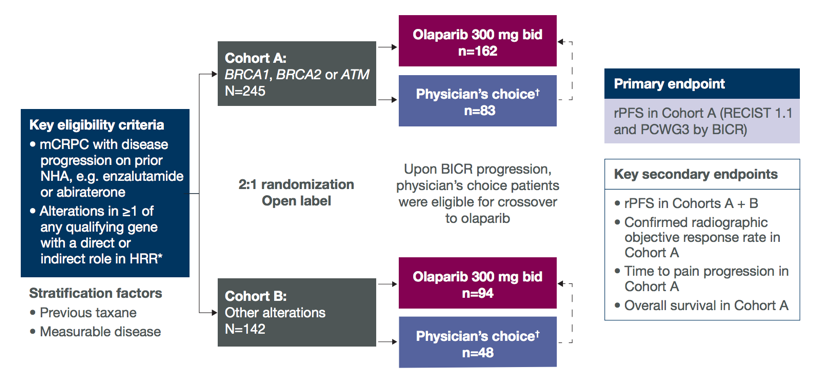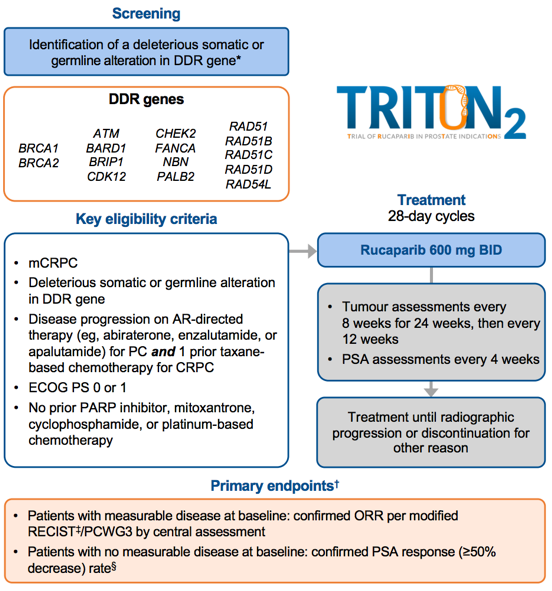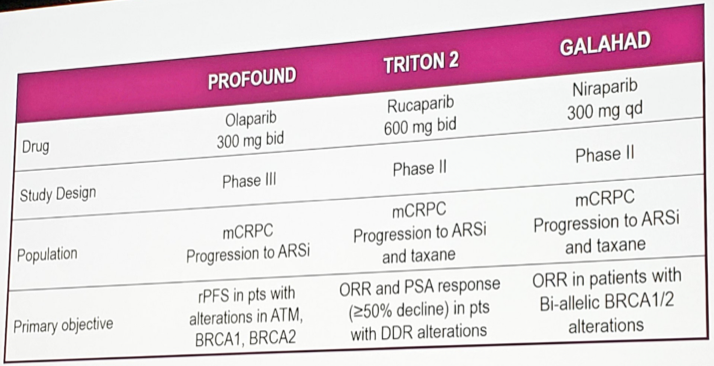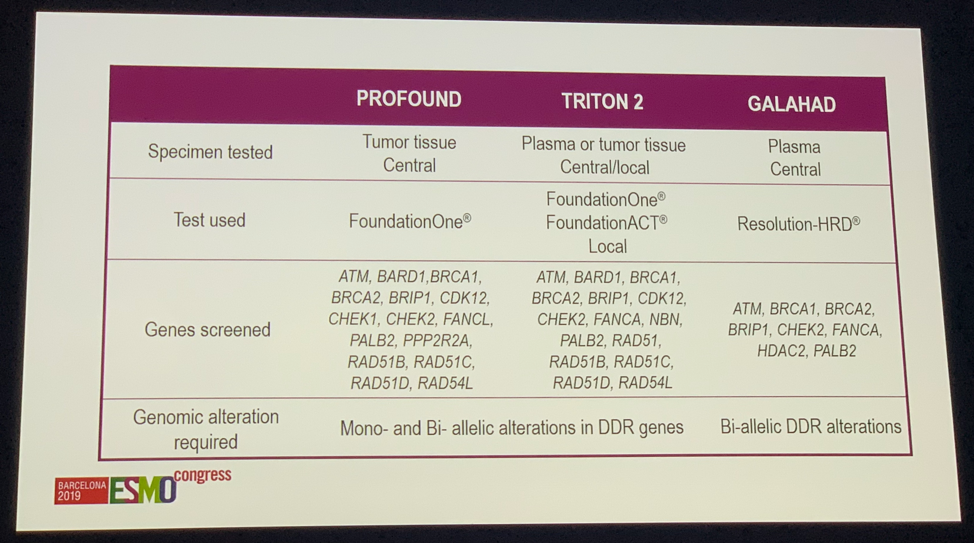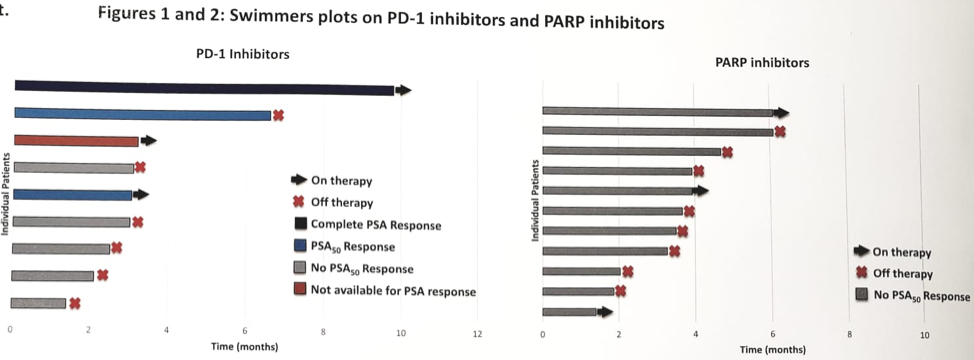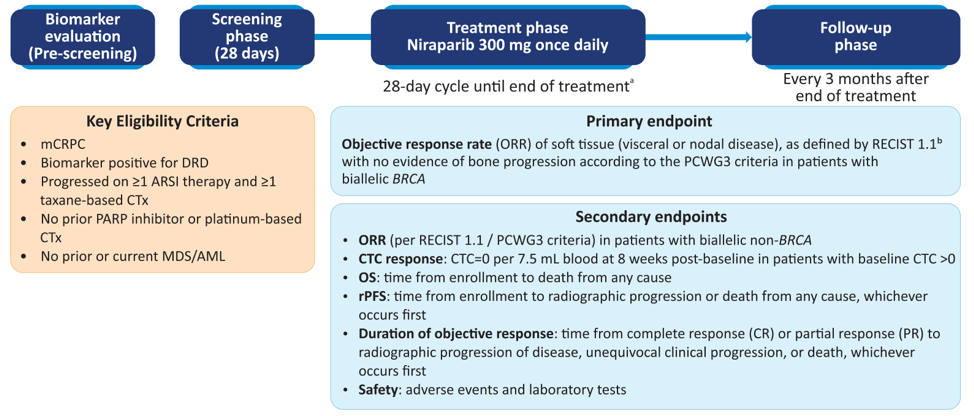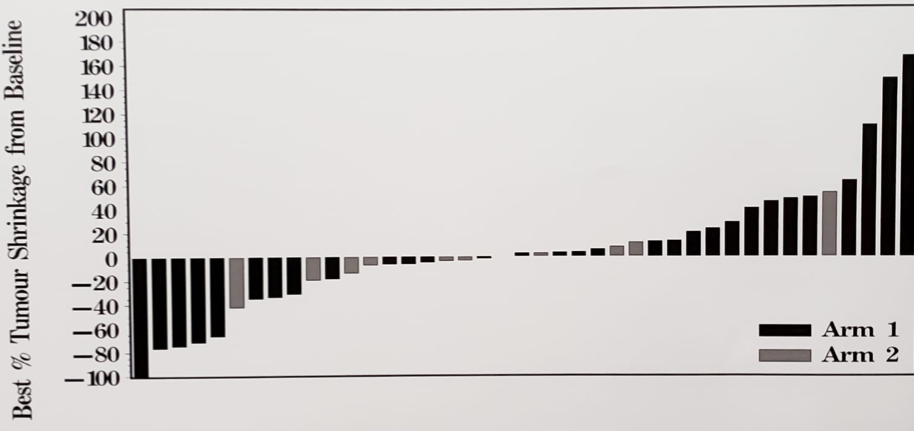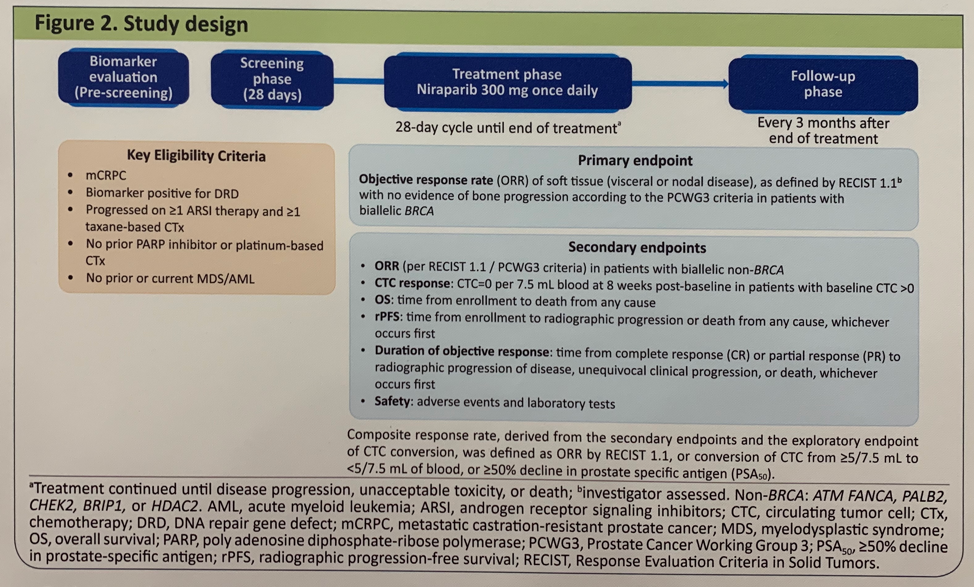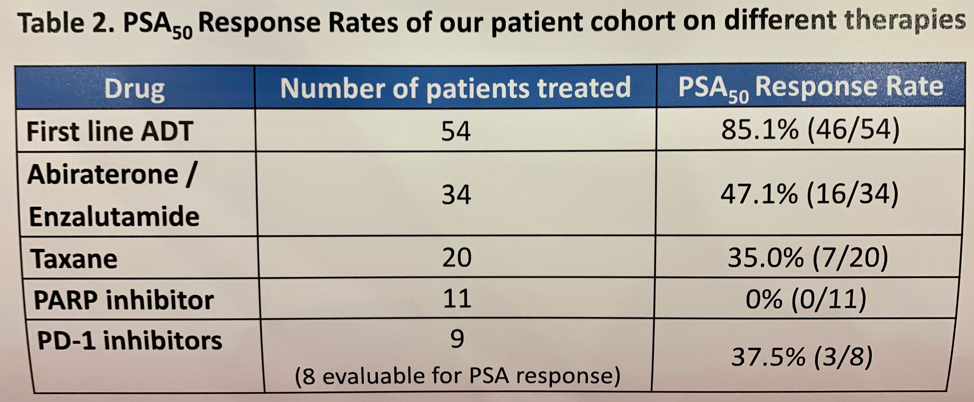ESMO 2019: Central, Prospective Detection of Homologous Recombination Repair Gene Mutations in Tumor Tissue from >4000 Men with mCRPC Screened for the PROfound Study
Barcelona, Spain (UroToday.com) A proportion of patients with metastatic castration-resistant prostate cancer (mCRPC) have tumor cells harboring homologous recombination repair gene mutations that may confer sensitivity to poly ADP-ribose polymerase (PARP) inhibition1. The PROfound study is a Phase III, randomized, multicenter trial evaluating the efficacy and safety of the PARP inhibitor olaparib versus physician’s choice […]

